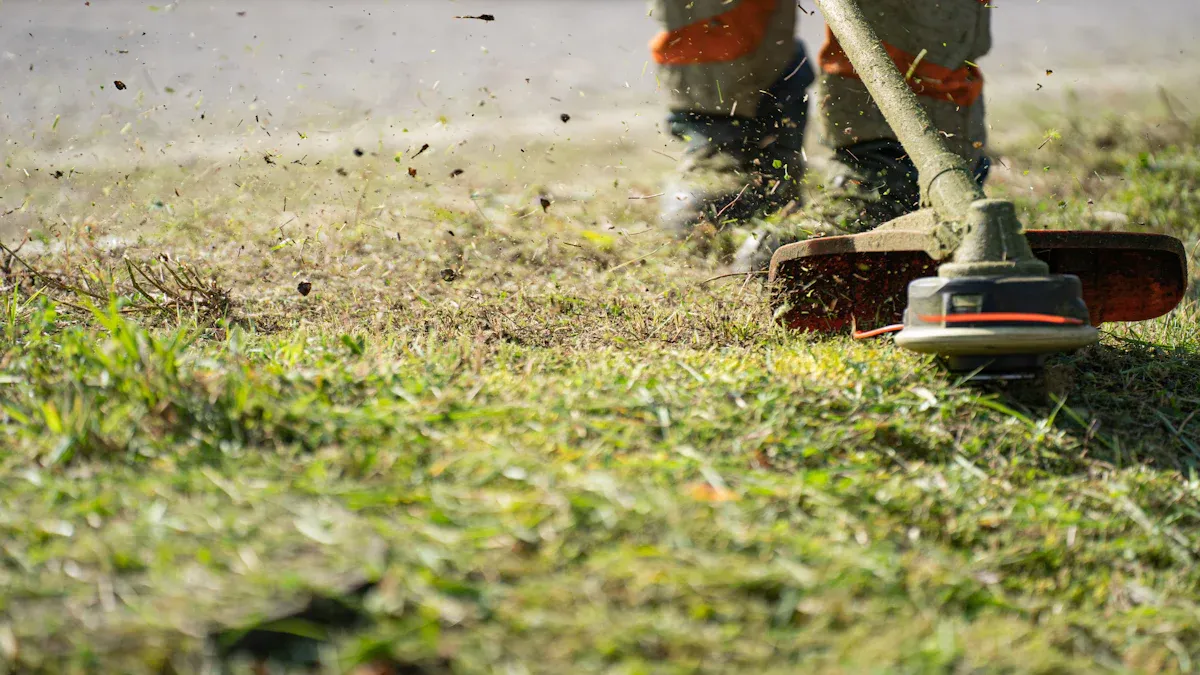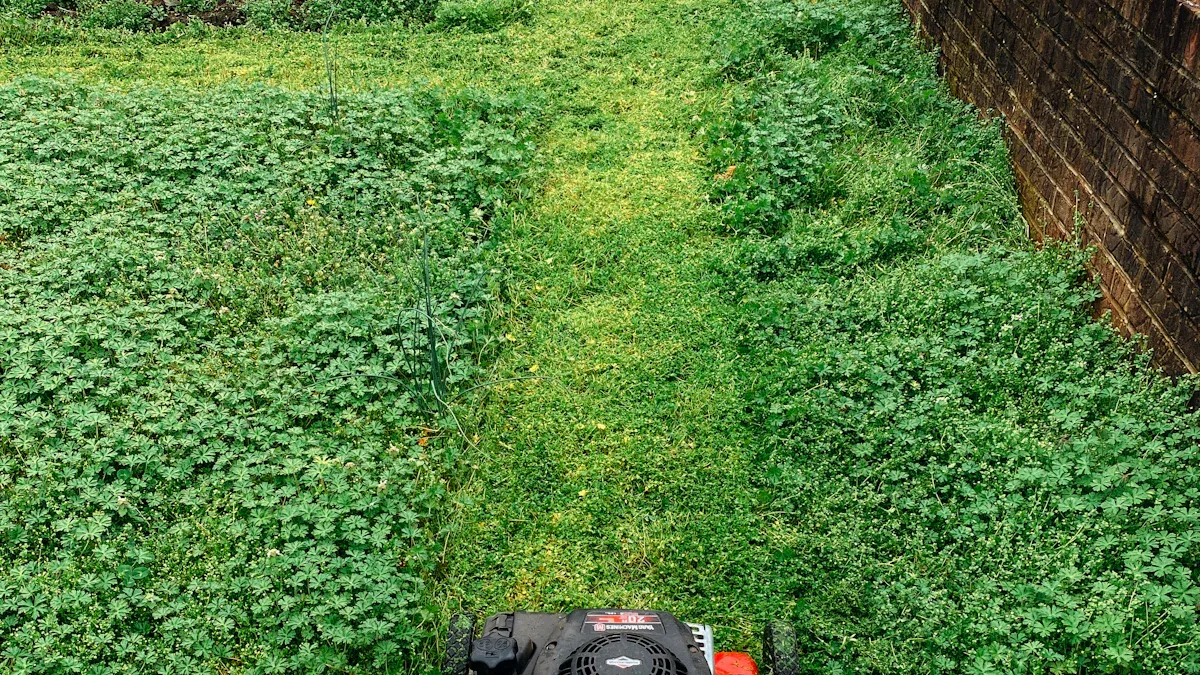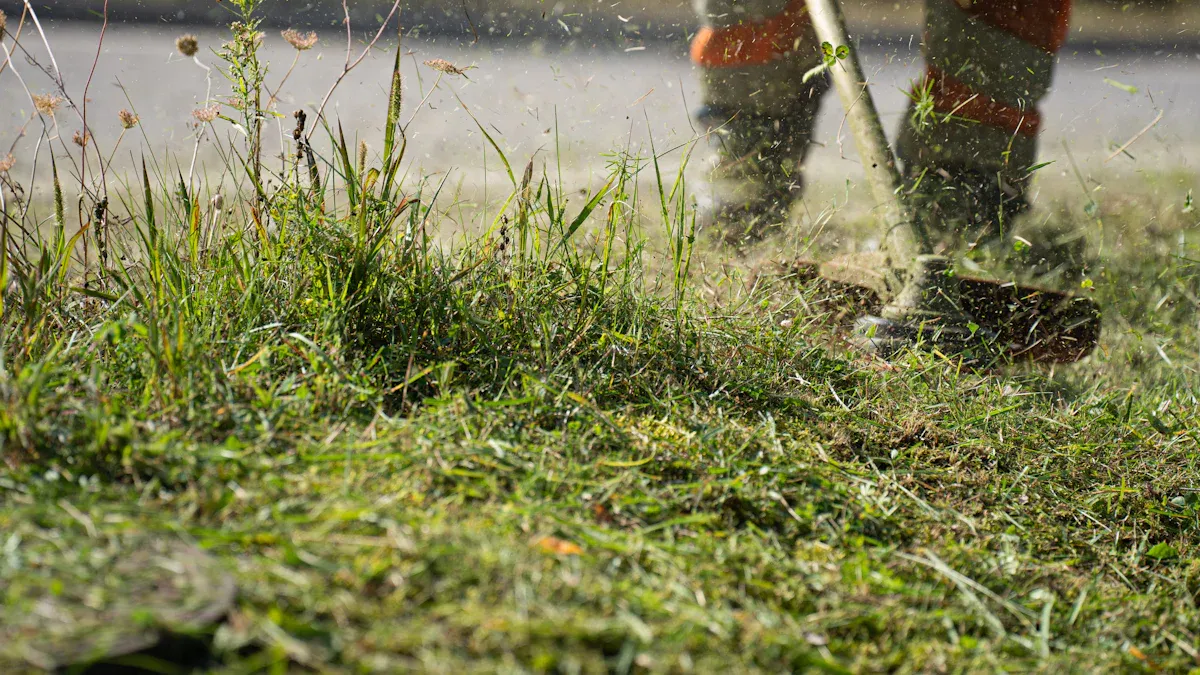You need durable trimmer lines for demanding tasks. Standard trimmer lines fail quickly under heavy-duty conditions. They snap on thick brush or hit rocks. A truly robust trimmer line withstands challenging environments. It keeps cutting when others quit.
Key Takeaways
- Match your trimmer line to your specific job. Use lines with sharp edges for thick brush. Choose abrasion-resistant lines for rocky areas.
- Understand line features for better performance. Co-polymer materials offer strength. Line shape affects cutting power. Thicker lines are more durable.
- Always use the correct line diameter for your trimmer. This prevents damage to your tool. It also ensures efficient cutting.
Top Durable Trimmer Line Picks for Heavy-Duty Use
You need the right tools for tough jobs. Choosing the best durable trimmer line makes a big difference. This section highlights top performers. These lines stand up to the most challenging conditions.
Best Trimmer Line for Thick Brush and Weeds
When you face dense brush and stubborn weeds, you need a line that cuts through without breaking. Look for lines with sharp edges and strong materials. A multi-sided or twisted profile often works best here. These shapes create more cutting surface. They slice through thick vegetation efficiently. You will find lines made from co-polymer materials offer superior strength. They resist snapping when they hit tough stalks. Consider a line with a serrated edge. It acts like a saw blade, tearing through woody growth.
Ideal Trimmer Line for Commercial Landscaping
Commercial landscapers demand reliability and efficiency. Your trimmer line must last through long workdays. It needs to handle diverse environments. Look for lines designed for high-volume use. These often feature advanced co-polymer blends. They offer a balance of flexibility and strength. A round or square profile works well for general commercial tasks. Square lines provide a clean cut. Round lines offer good durability against general wear. You need a line that loads easily and feeds consistently. This saves you time on the job.
Trimmer Line with Unmatched Abrasion Resistance
Rocky areas and concrete edges quickly wear down standard lines. You need a trimmer line that resists abrasion. Lines with a reinforced core or a specialized outer coating excel here. These features protect the line from friction and impact. Materials like nylon 6/6 or advanced co-polymers offer high resistance. They do not fray or break easily when they rub against hard surfaces. Look for lines specifically marketed for their abrasion resistance. They save you money by lasting longer.
Top Trimmer Line Choice for Rocky Terrain
Rocky terrain presents a unique challenge. Your line will hit rocks and debris frequently. You need a line that absorbs impact without shattering. Lines with a flexible yet tough composition are ideal. A round or star shape can perform well. Round lines are less likely to split on impact. Star-shaped lines offer cutting power while maintaining some flexibility. Consider a larger diameter line. It provides extra mass and strength to withstand repeated blows. You will spend less time reloading and more time trimming.
Quiet and Tough Vortex Trimmer Line
Some jobs require less noise. Vortex trimmer lines offer a solution. Their unique twisted or aerodynamic shape reduces wind noise. This makes your trimming experience more pleasant. Do not let the quiet fool you. These lines are still incredibly tough. The twisted design often adds strength and cutting efficiency. It creates a sharper cutting edge. You get powerful performance with reduced noise pollution. This is perfect for residential areas or early morning work.
Buyer’s Guide: Understanding Durable Trimmer Line Performance
You want to choose the best durable trimmer line. This guide helps you understand what makes a line perform well. You will learn about materials, shapes, and other key features. This knowledge helps you make smart choices for your heavy-duty tasks.
The Role of Trimmer Line Material Composition
The material in your trimmer line greatly affects its strength. Most lines use nylon. However, advanced lines use co-polymer blends. These blends combine different plastics. They offer superior resistance to breaking and fraying. You will find some lines have a tough outer shell and a flexible core. This design gives you both durability and impact absorption. Always look for materials known for their high tensile strength. This means they resist stretching and snapping under pressure.
Impact of Trimmer Line Shape and Profile
The shape of your trimmer line changes how it cuts. Round lines are very durable. They resist breaking when they hit hard objects. Square or star-shaped lines offer sharper edges. They cut through thick weeds more aggressively. Twisted or serrated lines act like small saws. They slice through woody brush effectively. You might also find multi-sided lines. These shapes combine durability with improved cutting power. Choose a shape that matches the type of vegetation you cut most often.
Trimmer Line Diameter and Its Durability Contribution
The diameter, or thickness, of your line directly impacts its durability. A thicker line is stronger. It resists breaking more often than a thinner one. Thicker lines also provide more mass. This helps them cut through dense material with greater force. However, your trimmer has limits. You must use a diameter that fits your trimmer head. Using too thick a line can strain your trimmer’s motor. Always check your trimmer’s manual for recommended line sizes.
Welding Resistance in Trimmer Line Explained
Sometimes, your trimmer line can melt together. This happens from friction and heat during use. We call this “welding.” When lines weld, they stop feeding correctly. This interrupts your work. Good durable lines have high welding resistance. They use special additives or coatings. These features help the line stay cool. They prevent the strands from fusing together. You will spend less time untangling and more time trimming.
Matching Trimmer Line to Your Trimmer Type
Your trimmer’s power dictates the best line for it. Electric trimmers often use thinner lines. Battery-powered trimmers also work best with specific line sizes. Gas-powered trimmers handle thicker, more aggressive lines. You must match the line to your machine. Using the wrong size can damage your trimmer. It also reduces cutting efficiency. Always consult your trimmer’s specifications. This ensures optimal performance and prevents wear.
Assessing Your Specific Heavy-Duty Trimming Needs
Think about the challenges you face. Do you clear dense brush? Do you trim around concrete or rocks? Your specific needs guide your choice. For very thick brush, you need a line with aggressive cutting edges. For rocky areas, you need a line with high abrasion resistance. You might need different lines for different jobs. Understanding your tasks helps you pick the right tool.
Considering Environmental Factors for Trimmer Line Selection
Environmental conditions affect line performance. Hot weather can make some lines brittle. This makes them break more easily. Cold weather can also impact flexibility. Wet conditions might cause lines to stick. Look for lines designed to perform well in various temperatures. Some lines have UV protection. This prevents sun damage during storage. You get consistent performance regardless of the weather.
Balancing Cost and Performance of Trimmer Line
You will find a range of prices for trimmer lines. Cheaper lines might save money upfront. However, they often break more frequently. This means you use more line. You also spend more time reloading. A higher-quality, more durable line costs more initially. But it lasts longer. It also performs better. This saves you time and frustration. You often save money in the long run.
How We Tested Durable Trimmer Lines
You want to know how we found the best trimmer lines. We put each one through tough tests. Our goal was to see which lines truly stand up to heavy-duty work.
Real-World Application Scenarios for Trimmer Line
We took each trimmer line to challenging environments. You need to know how they perform in your yard. We cut through dense, overgrown fields. We trimmed along concrete sidewalks and brick walls. Our tests included areas with hidden rocks and tough woody brush. We even tackled thick, matted weeds that usually snap lines quickly. This showed us how each line handles real-world stress.
Objective Performance Metrics for Trimmer Line Durability
We measured specific things to judge durability. You want facts, not just feelings. We counted how many times a line broke during a set task. We checked how much the line wore down after extended use. We also looked at cutting efficiency. Did it slice cleanly, or did it just fray the weeds? We recorded how often you needed to reload the trimmer head.
Long-Term Durability Assessments of Trimmer Line
A good trimmer line lasts. We did not just test for a few minutes. We used each line for several hours across multiple days. This showed us how they performed over time. Did they become brittle? Did they lose their cutting edge? You need a line that works consistently, not just at first.
Expert Evaluation Process for Trimmer Line Performance
Experienced landscapers and groundskeepers performed the tests. They know what a tough job demands. They gave us their feedback on handling, noise, and overall performance. Their practical insights helped us understand the true value of each trimmer line. You get recommendations from people who use these tools every day.
You now understand the leading durable options for heavy-duty work. Select your ultimate line by matching it to your specific tasks and terrain. This choice empowers you. You can tackle the toughest trimming jobs with confidence. Pick the right one and conquer any challenge.
FAQ
What is the best trimmer line for general heavy-duty use?
You should choose a co-polymer line. Look for a multi-sided or twisted shape. This offers good cutting power and durability. It handles various tough tasks well.
Can I use a thicker line than my trimmer recommends?
No, you should not. Using a line too thick can strain your trimmer’s motor. It can also cause damage. Always follow your trimmer’s manual for line size.
How do I prevent my trimmer line from welding?
You can prevent welding. Choose lines with high welding resistance. These lines have special coatings. They help keep the line cool during use. This stops strands from fusing together.
Post time: Oct-31-2025










